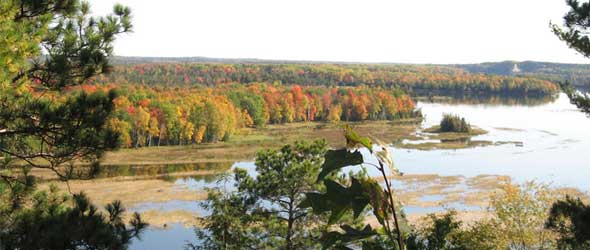Divided Michigan Supreme Court Overturns Anglers of the Au Sable Decision, Reverses Environmental Victory
The Michigan Supreme Court’s new conservative majority overturned a four-month-old court decision by a 4-3 margin this week, casting doubt on the rights of state citizens to sue over environmental harm.
The case, Anglers of the Au Sable v. Michigan Department of Environmental Quality and Merit Energy Company, involved a plan by the Houston-based Merit Energy to dump more than a million gallons of partially contaminated pump wastewater into a creek that flows into the Au Sable River, one of the nation’s top trout and salmon streams.
When the state Department of Environmental Quality (DEQ) approved Merit Energy’s plan in 2005, Anglers of the Au Sable, a 600-member environmental conservation group, mounted a legal campaign to block the move.
On December 29, a narrow 4-3 majority of the court ruled that Merit Energy’s discharge plan was “manifestly unreasonable” and that the DEQ should be held accountable for violating the Michigan Environmental Protection Act. The action overruled a previous opinion that the court had issued in the 2004 case of Preserve the Dunes v. DEQ that let the state environmental agency off the hook for permitting a sand dune mining operation on protected dunes.
Writing the December 29 opinion was Justice Alton Thomas Davis, who had been appointed to the state’s top court in August to fill the last four months of Justice Elizabeth Weaver’s term after she resigned. Davis’ term expired days after the court issued its Anglers of the Au Sable opinion, and Republican-backed Mary Beth Kelly has since taken his seat.
The three judges who dissented in the December 29 decision argued that the case should have ended in June 2010, when the defendants moved to dismiss it. By then, Merit Energy had submitted a new cleanup plan that did not involve dumping water into the Au Sable.
“This case is simply an empty vehicle to reach desired policy results,” Judge Robert P. Young, Jr. wrote in the dissent. “This is so because this case was moot in June 2010 … and this case remains moot today, despite the majority’s raw exercise of power in deciding a nonjusticiable case.”
Judge Young, who now serves as the high court’s chief justice, was part of the 4-3 majority that threw out the December 29 ruling last week. Joining him were Stephen Markman, who had been one of the three dissenting judges, and newly elected justices Mary Beth Kelly and Brian Zahra.
Bruce Pregler, president of Anglers of the Au Sable, called the decision “a slap in the face to citizens of Michigan who depend upon the plain meaning of our laws that grant them the right to bring actions in our courts to protect our water and environment.”
Environmental law expert Noah Hall, professor of law at Wayne State University and author of the Great Lakes Law blog, opined on the decision’s impact in an April 26 blog post.
“My take is that Chief Justice Young was probably correct to raise mootness as a concern last year, and perhaps the appeal should never have been heard,” Hall wrote. “On the other hand, there is still considerable uncertainty about the scope and implications of the Preserve the Dunes decision, leaving citizens unsure of their legal options to challenge state permitted pollution.”
State citizens, business owners and lawyers need more clarity on the issue, Hall argued.
“Instead, we got another politically divided opinion that may only last until the next election.”
The Michigan Supreme Court’s April 25 decision and dissent are available here.
Sources: The Associated Press, Great Lakes Law
Read more on Circle of Blue:
- Michigan Supreme Court Decision in Au Sable River Case Shores Up Protection for Environment (January 17, 2011)
- Michigan Supreme Court Case Could Strengthen Protection of State’s Lakes, Streams, and Groundwater (August 4, 2010)









Leave a Reply
Want to join the discussion?Feel free to contribute!